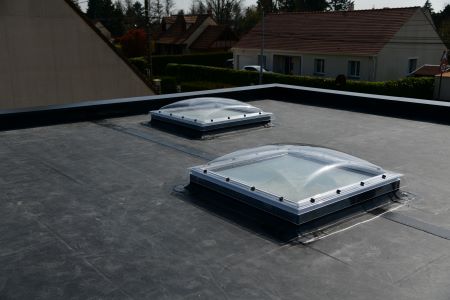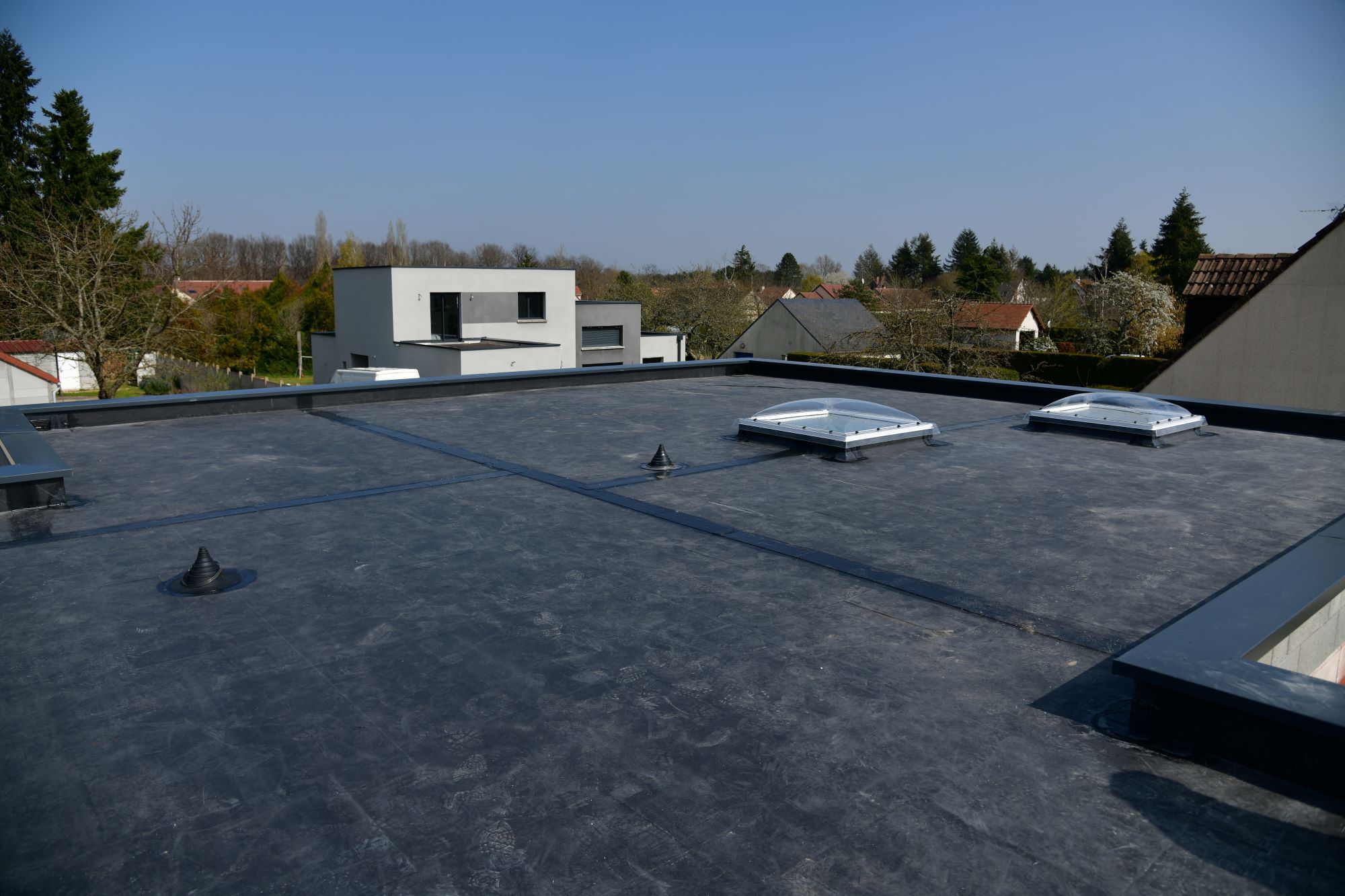Commercial roofing is a critical aspect of maintaining your business property. A reliable and well-maintained roof not only protects your investment but also ensures the safety of your employees and customers. When it comes to choosing a commercial roofing contractor, it’s essential to make an informed decision. The process can be daunting, considering the numerous options available in the market. In this comprehensive guide, we will explore the key factors to consider when selecting a reliable commercial roofing contractor, including commercial roofing, roofing estimates, and roofing maintenance.
Your commercial roof plays a vital role in protecting your business, assets, and the people within your premises. Over time, it will require maintenance, repairs, or even a complete replacement. Selecting a reliable commercial roofing contractor is crucial to ensure that the job is done efficiently and effectively. To make an informed decision, you need to consider various factors, including the contractor’s experience, reputation, pricing, and their commitment to roofing maintenance. This guide will walk you through the process of choosing the right commercial roofing contractor for your needs.
Why Choose a Reliable Commercial Roofing Contractor?
Before delving into the specifics of choosing a commercial roofing contractor, it’s essential to understand why reliability is paramount. The roof of your commercial property is a significant investment. It not only protects your business but also impacts its overall value. Here are some compelling reasons why choosing a reliable roofing contractor is essential:
1. Protect Your Investment
A commercial roof represents a substantial investment for any business. It’s a critical part of your property that provides protection against the elements, including rain, snow, hail, and UV radiation. A reliable contractor will ensure that your roof is installed or repaired correctly, extending its lifespan and protecting your investment.
2. Ensure Safety
The safety of your employees and customers is paramount. A well-maintained roof reduces the risk of accidents due to leaks, structural damage, or collapses. Hiring a reliable roofing contractor ensures that your roof is in optimal condition, minimizing safety hazards.
3. Maintain Business Continuity
Roofing projects, whether repairs or replacements, can disrupt your business operations. A reliable contractor will work efficiently and minimize downtime, allowing your business to continue operating smoothly during the roofing project.
4. Long-Term Savings
A well-maintained roof can save you money in the long run. Regular inspections and maintenance can identify and address issues early, preventing costly repairs or replacements. A reliable roofing contractor will provide roofing maintenance services to help you maximize the lifespan of your roof and reduce long-term costs.
Key Considerations for Choosing a Reliable Commercial Roofing Contractor
Now that you understand the importance of reliability in a commercial roofing contractor, let’s explore the key considerations you should keep in mind when making your choice:
1. Experience and Expertise
One of the first things to look for in a commercial roofing contractor is their experience and expertise. How long have they been in the industry? Do they specialize in commercial roofing, or do they primarily work on residential projects? Commercial roofing has its unique challenges, so it’s essential to choose a contractor with a track record of success in the commercial sector.
2. Reputation and References
A reliable contractor should have a positive reputation in the industry and a history of satisfied clients. Ask for references and contact previous clients to inquire about their experiences. Online reviews and testimonials can also provide valuable insights into a contractor’s reputation.
3. Licensing and Insurance
Ensure that the contractor is properly licensed and insured. Licensing requirements vary by state and locality, so check the regulations in your area. Insurance is crucial to protect you from liability in case of accidents or damage to your property during the roofing project.
4. Written Estimates
Obtain written estimates from multiple contractors before making your decision. The estimates should include a detailed breakdown of the costs, materials, labor, and any additional charges. Be wary of contractors who provide vague or verbal estimates, as they can lead to disputes later.
5. Quality of Materials
The quality of roofing materials used is critical to the longevity and performance of your commercial roof. Ask the contractor about the types of materials they use and whether they have partnerships with reputable manufacturers. High-quality materials may come with a higher initial cost but can save you money in the long run by reducing maintenance and replacement expenses.
6. Warranty and Guarantees
Inquire about the warranties and guarantees offered by the contractor. A reputable contractor should provide warranties for both the materials and the workmanship. Ensure that you understand the terms and conditions of these warranties and how to make a claim if needed.
7. Safety Measures
Safety should be a top priority for any roofing project. Ask the contractor about their safety protocols and training for their workers. Ensure that they follow industry best practices and adhere to safety regulations to protect your property and everyone involved in the project.
8. Communication and Transparency
Effective communication is essential throughout the roofing project. A reliable contractor should be transparent about the timeline, progress, and any issues that may arise. They should also be responsive to your questions and concerns.
9. Roofing Maintenance Services
Consider whether the contractor offers roofing maintenance services. Regular maintenance is essential to extend the lifespan of your commercial roof and prevent costly repairs. Having the same contractor who installed your roof also perform maintenance can provide continuity and ensure that they are familiar with the roof’s history.
10. Local Knowledge
Choosing a contractor with local knowledge can be advantageous. They will be familiar with the local climate, building codes, and permitting requirements. This can help expedite the project and ensure compliance with local regulations.
The Roofing Estimate Process
One crucial aspect of selecting a reliable commercial roofing contractor is the roofing estimate process. Let’s dive deeper into what you should expect during this phase:
1. Initial Consultation
The roofing estimate process typically begins with an initial consultation. You’ll meet with the contractor to discuss your roofing needs, budget, and timeline. This is an opportunity to ask questions and provide any specific requirements you may have.
2. Roof Inspection
After the initial consultation, the contractor will conduct a thorough inspection of your existing roof. They will assess its condition, identify any issues or damage, and determine whether repairs or replacement are necessary. This inspection is crucial for providing an accurate estimate.
3. Written Estimate
Based on the roof inspection and your discussions, the contractor will provide you with a written estimate. This estimate should include detailed information about the scope of work, materials to be used, labor costs, and any additional charges. It’s essential to review this estimate carefully and ask for clarification on any items you don’t understand.
4. Comparison
It’s advisable to obtain estimates from multiple contractors. This allows you to compare their proposals, pricing, and services. Keep in mind that the lowest bid may not always be the best choice. Consider the contractor’s reputation, experience, and the quality of materials they propose to use.
5. Contract Agreement
Once you’ve selected a contractor, they will provide a contract agreement outlining the terms and conditions of the project. Review the contract thoroughly and ensure that it includes all the details discussed in the estimate. Pay attention to payment schedules, project timeline, and any warranties or guarantees.
6. Permits and Approvals
Depending on your location and the scope of the roofing project, permits and approvals may be required. A reliable contractor should assist you in obtaining the necessary permits and ensure that the project complies with local regulations.
7. Project Commencement
Once the contract is signed and permits are in place, the roofing project can commence. The contractor should provide a clear timeline and keep you updated on the progress. Effective communication during this phase is crucial to ensure that the project stays on track.
8. Final Inspection and Approval
After the roofing work is completed, the contractor should conduct a final inspection to ensure that everything meets the agreed-upon standards. You should also inspect the work and raise any concerns or issues that need addressing. Once you are satisfied with the outcome, final approval can be given.
9. Warranty Documentation
The contractor should provide you with documentation for any warranties or guarantees associated with the roofing materials and workmanship. Keep these documents in a safe place for future reference.
Roofing Maintenance for Longevity
While choosing a reliable commercial roofing contractor for your installation or repair is essential, ongoing maintenance is equally critical for the longevity of your roof. Here are some key aspects of roofing maintenance:
1. Regular Inspections
Schedule regular inspections of your commercial roof to identify any issues early. These inspections should be conducted by experienced professionals who can spot potential problems and address them promptly.

2. Cleaning and Debris Removal
Keep the roof clean and free of debris, leaves, and other materials that can trap moisture and cause damage. Regular cleaning can prevent issues such as mold growth and water pooling.
3. Gutter Maintenance
Ensure that your gutters are clear and functioning correctly. Proper gutter maintenance prevents water from accumulating on the roof and causing leaks or structural damage.
4. Repairs and Patching
Address any small issues promptly through repairs and patching. Neglecting minor problems can lead to more significant and costly repairs down the road.
5. Sealant and Coating
Consider applying sealant or coating to your commercial roof to protect it from the elements. This can extend the lifespan of your roof and improve energy efficiency.
6. Documenting Maintenance
Keep records of all maintenance activities, including inspections, repairs, and any warranty-related work. This documentation can be valuable for future reference and warranty claims.
Choosing a reliable commercial roofing contractor is a critical decision that can significantly impact the longevity and performance of your commercial roof. By considering factors such as experience, reputation, licensing, written estimates, and commitment to roofing maintenance, you can make an informed choice that protects your investment, ensures safety, and maintains business continuity.
Remember that the roofing estimate process plays a vital role in selecting the right contractor. It involves an initial consultation, roof inspection, written estimate, contract agreement, permits and approvals, project commencement, final inspection, and warranty documentation. Effective communication throughout the process is key to a successful roofing project.
Lastly, ongoing roofing maintenance is essential for the long-term durability of your commercial roof. Regular inspections, cleaning, gutter maintenance, repairs, and the application of sealant or coating can help extend your roof’s lifespan and reduce maintenance costs over time.
In conclusion, investing time and effort in choosing the right commercial roofing contractor and prioritizing roofing maintenance will pay off in the form of a secure and durable roof that protects your business for years to come.

